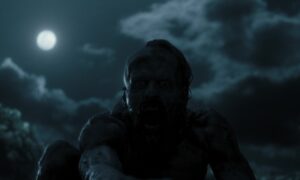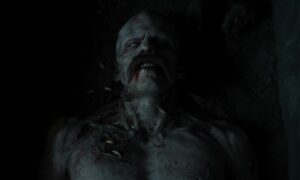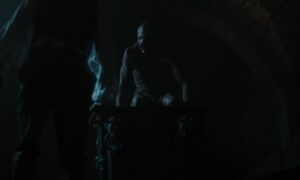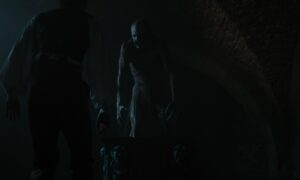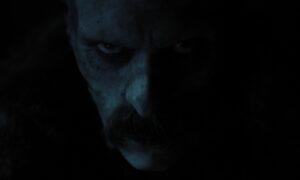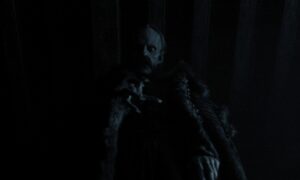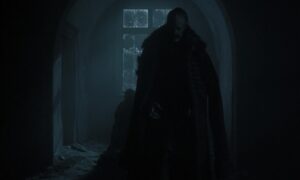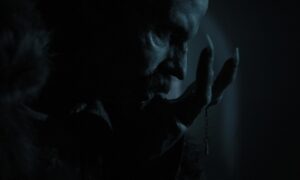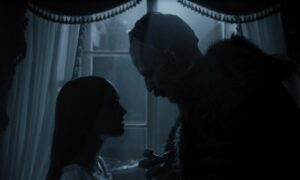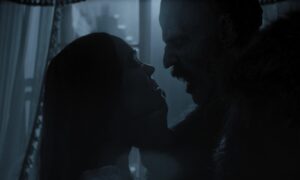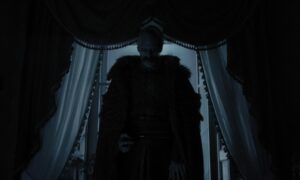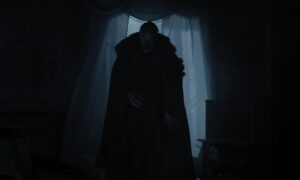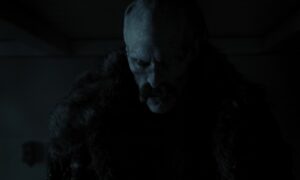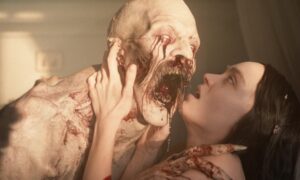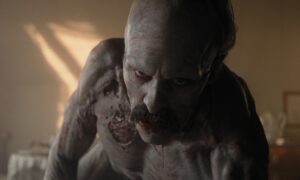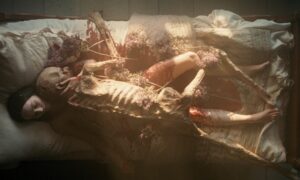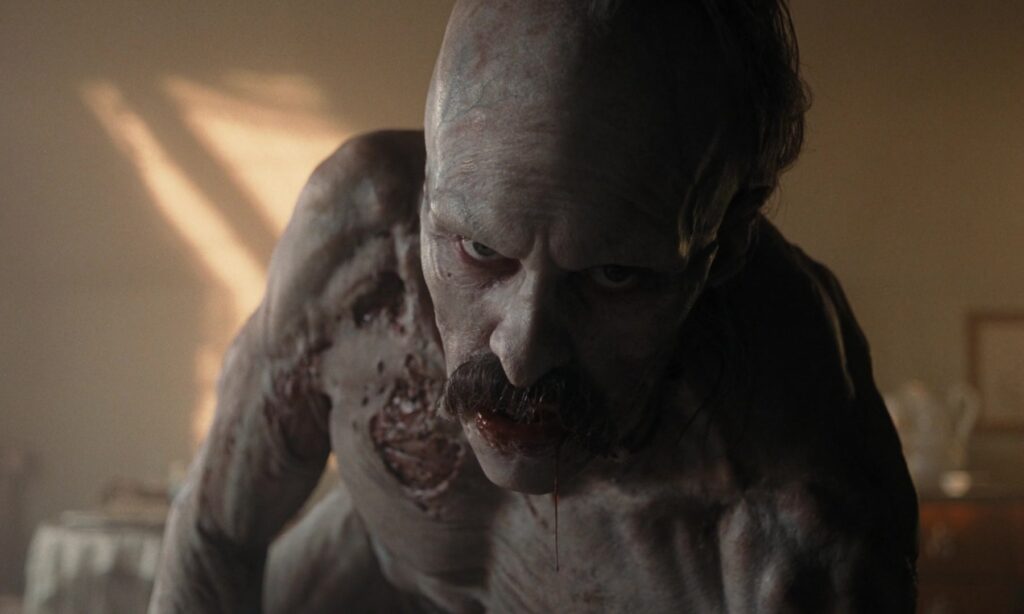
Robert Eggers’ Nosferatu is a full blown nightmare about obsession, loneliness, and the dark side of human desire. Yeah, there’s blood and death and creepy shadows, but underneath all that it’s about what happens when love turns into something ugly… something that drains you dry.
Here’s why Nosferatu (2024) is way more psychological horror than you probably expected.
Count Orlok Is More Than Just a Monster
In Eggers’ version, Count Orlok (played by Bill Skarsgård) isn’t some mindless bloodsucker. He’s tragically obsessed with Ellen, and that obsession isn’t just creepy. It’s rather sad. You can feel the loneliness oozing off him every time he appears. Orlok isn’t hunting because he’s evil. He’s desperate for connection. But the way he seeks it is toxic and violent, like a metaphor for relationships built on obsession instead of real love. It’s why every scene he shares with Ellen feels heavy. He’s drawn to her because she represents warmth and life, everything he’s lost, but his idea of “love” is to consume her completely.
Ellen’s Death Wish: A Study in Sacrifice and Control
Let’s talk about Ellen (played by Lily-Rose Depp), because her role is brutal. Once she realizes Count Orlok is fixated on her, she doesn’t just run away screaming. Instead, she lets him come to her. She lets herself become the bait, even though she knows it’ll kill her. That decision is the most psychologically messed up part of the whole movie.
Ellen sacrificing herself isn’t just “heroic”. It’s about power. She’s trapped in a world where the men around her (Thomas, Professor Albin, the mayor) have failed to protect anyone. So she takes back control the only way she can: by offering herself, ending Orlok’s plague, and choosing her own death instead of waiting for the town to collapse around her. It’s heartbreaking. It’s empowering. It’s horrifying.
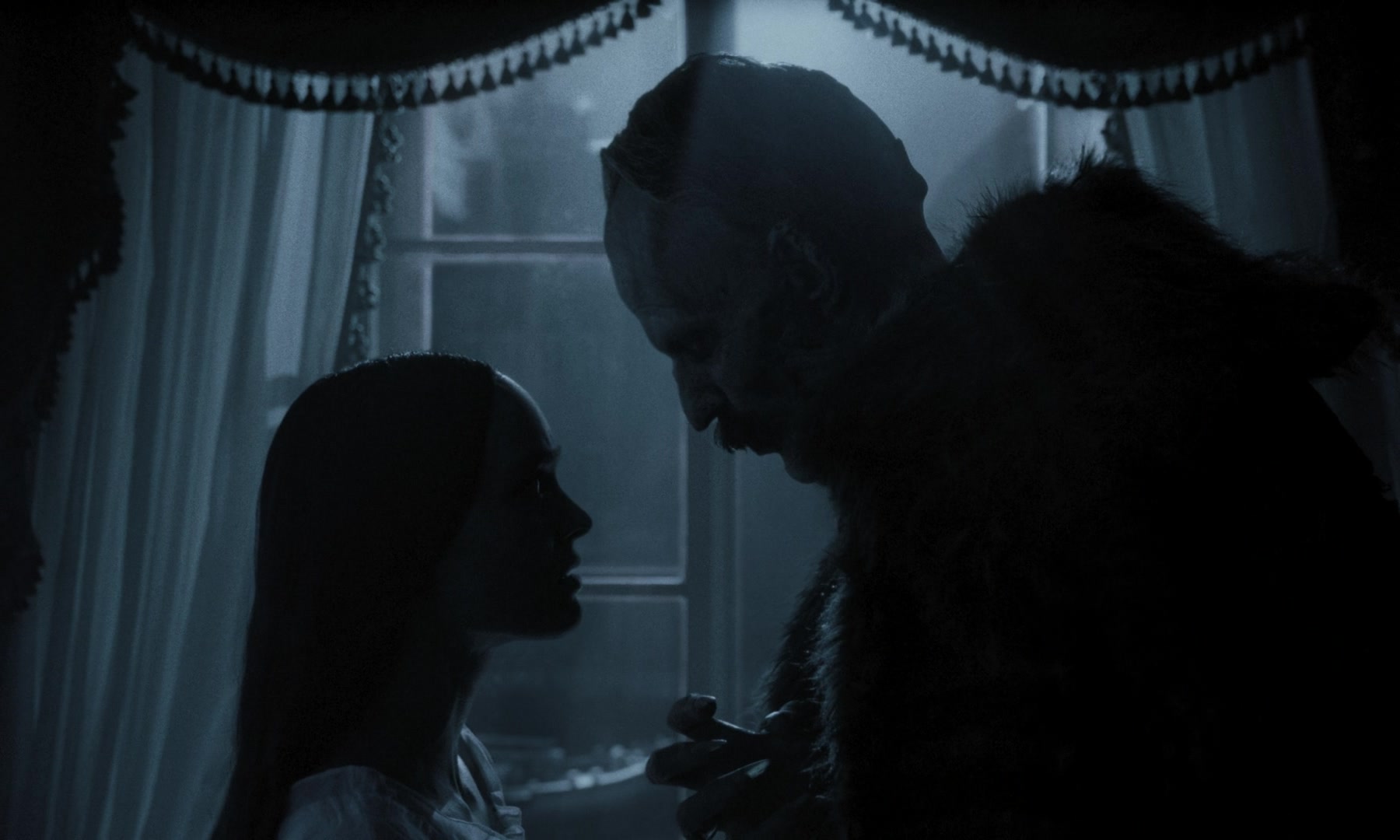
Nosferatu’s Obsession Is a Mirror to Human Desire
Eggers makes it pretty clear: Orlok’s thirst isn’t just about blood. It’s about craving. Hunger. Loneliness. Sound familiar? That’s because the real horror here is very human. We all have things we want so badly it hurts; love, belonging, attention. But if that hunger goes unchecked? If it turns selfish? It can destroy the very thing we claim to love. Count Orlok is the worst case scenario of unchecked desire. A monster made out of the most natural human need.
Isolation as Horror
Another big psychological theme is solation. Eggers builds an insane amount of dread just by showing how cut off everyone feels, not just Orlok, but Thomas and Ellen too. The small, plague ridden town feels claustrophobic. People are helpless. Authorities are useless. Neighbors turn on each other. Isolation feeds fear and fear feeds monsters. Nosferatu taps into that feeling that when things get bad, you’re all alone. And nobody’s coming to save you.
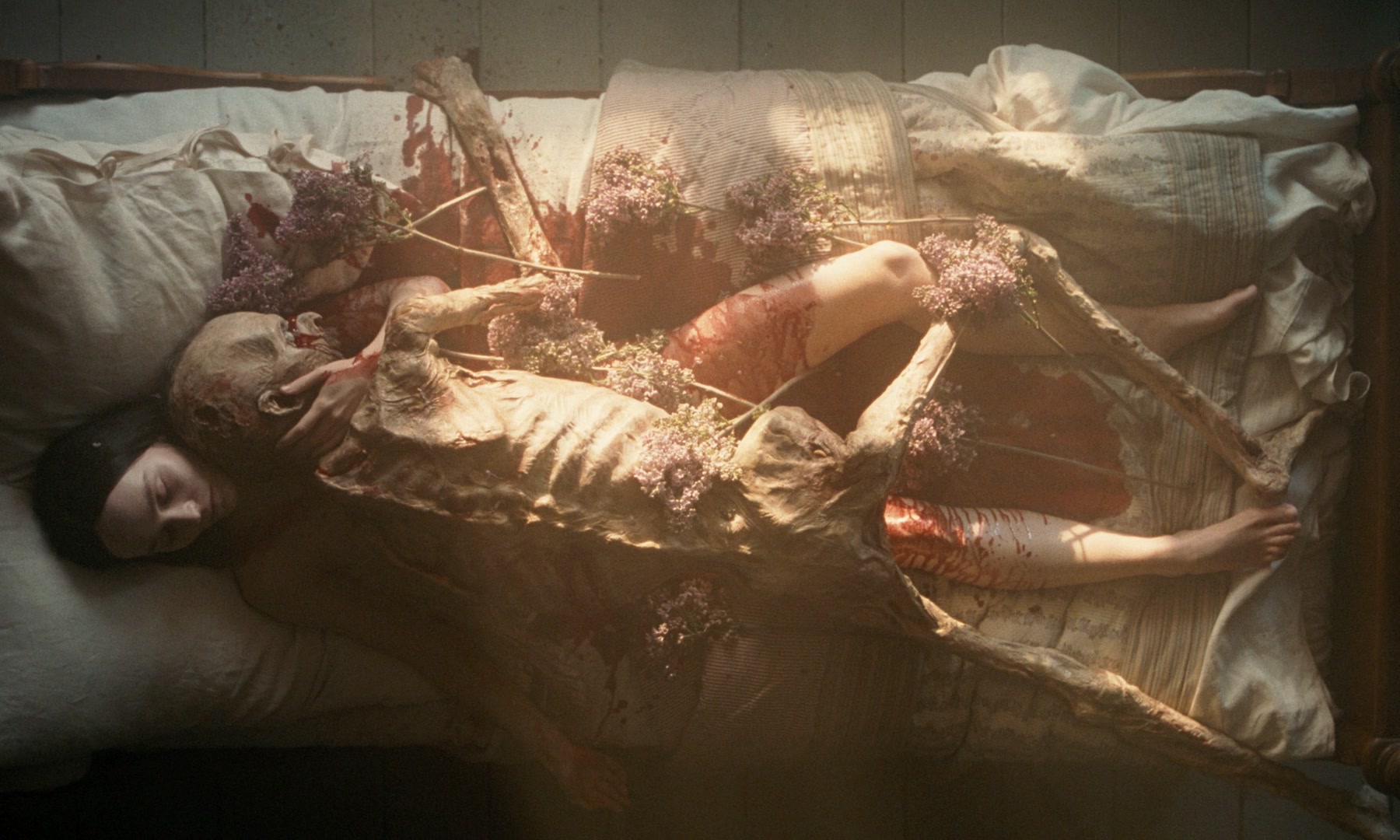
Nosferatu Is Psychological Horror Done Right
Robert Eggers’ Nosferatu isn’t about vampires. Not really. It’s about loneliness, obsession, and how love can curdle into something deadly. It’s tragic. It’s gothic. It’s beautiful and sick at the same time. If you walked into this movie expecting another vampire flick, you probably walked out feeling haunted for a whole different reason. Because the scariest monster in Nosferatu… is human longing itself.
